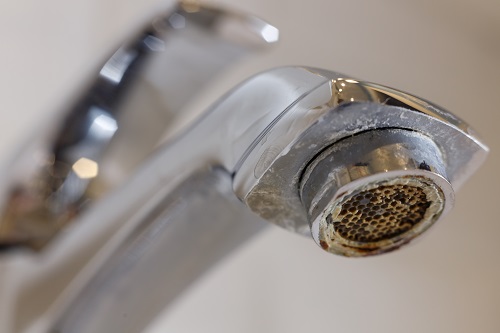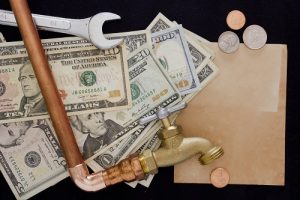
You’ve probably heard about hard water. But you really know what it is and why it’s causing plumbing problems. What does “hard water” mean?
The level of dissolved minerals in water is called hardness. Minerals may be present in varying amounts, but the main minerals are magnesium and calcium. These minerals contribute to the level of hardness or softness of water.
Minerals are not harmful to your health but they can cause problems when they accumulate in pipes or on plumbing fixtures.
Our experts explain the effects of hard water on water systems and the plumbing services and repairs that can be done to fix the problem.
What is the impact of hard water on your plumbing?
The mineral deposits in hard water can clog pipes. The minerals precipitate when you heat the hard water. These mineral deposits are then deposited in your water heater, plumbing system, dishwasher, and washing machine.
This can cause serious problems in your plumbing system. For example, low water pressure, increasing water bills and malfunctioning of household appliances are all possible.
Some plumbing systems can be more susceptible to hard water. Hard water is less damaging to PVC and Copper pipes, but mineral buildup can still cause problems if not addressed.
Common signs that you have hard water
These are some signs that your home could have hard water.
Drinking water of low quality
Hard water can cause small particles and debris to accumulate in the water. These particles are collected as the stream travels along your pipes and reaches your faucets, showers, and other fixtures.
The particles found in your water can be trace amounts of iron, calcium, magnesium, and copper. If you do not address this problem as soon as possible the deposits will continue to build up in your plumbing until they clog your pipes.
Regular maintenance can help you to avoid costly repairs to your plumbing system. Ask our professionals in plumbing repair and service for hard water for the best advice on water softeners.
Soap Scum On Fixtures
Scum is the solid deposit created by soap when used in hard water. The insoluble deposit results from charged calcium and magnesium particles reacting with glycerine. The substance is slowly accumulating, but it can cause mildew and mold growth. It may eventually lead to clogged pipes.
Scum can also contain bacteria that could put you and those around you at risk of illness.
Problematic Appliances
Hard water can negatively impact household appliances such as water heaters, washers, and dishwashers. Mineral deposits on household appliances can clog up valves, and cause other problems. This will lead to your appliances deteriorating quickly.
 Stiff or Rough Fabric
Stiff or Rough Fabric
Mineral deposits can attach to clothing or linen if they are not removed. This will make the fabric feel rough and stiff. These deposits can weaken the fabric and cause discolorations.
Water Bills
Massive deposits of hard water in your pipes can lead to unwanted materials or excess water being trapped. The increased pressure inside the pipe can eventually lead to cracks and leakages. This type of damage can increase your utility bill if not repaired in time.
Recurrent Plumbing Repairs
Mineral deposits can easily corrode water-dependent appliances and pipes. You’ll have to fix your plumbing and other fixtures frequently because of the damage.
How can you fix the hard water problem?
Two major solutions are offered by our plumbing contractors in Myrtle Beach to solve the problem of hard water in your home.
- Water softener investment
- Installing reverse osmosis systems
Water softeners are tanks installed between the water source and the plumbing system of your home. The tank is filled with an inorganic, softening substance that’s suspended in a solution of saltwater.
The sodium in the water is displaced by the minerals suspended therein (a process known as ion exchange). This swap removes the hard minerals before the water reaches the tap.
Reverse osmosis involves removing the hard minerals in water using a semipermeable cell. This system traps minerals as well as other impurities in order to purify and soften your water. It is more expensive to buy a reverse osmosis water system than a softener.
Call our experts at Blue Ribbon Plumbing LLC if you have questions about plumbing repair and service for hard water.
Like our Facebook page for more great info about plumbing services.
Blue Ribbon Plumbing LLC
4201 Carolina Exchange Drive Suite 202
Myrtle Beach, SC 29579
(843) 267-9733
https://www.blueribbonplumbingmb.com/
Serving all of Horry County including Myrtle Beach, North Myrtle Beach, Little River, Murrells Inlet/Garden City, Surfside Beach, Carolina Forest/Forestbrook, Conway/Aynor
No comments:
Post a Comment